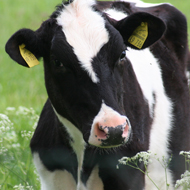Northern Ireland may be declared Brucellosis-free

Brucellosis is a highly contagious cattle disease, characterised by abortions.
It has now been three years since the last confirmed case of Brucellosis in Northern Ireland, meaning the province can apply for officially brucellosis free (OBF) status.
Achieving this status would allow the government to reduce Brucellosis control measures, including on-farm testing and pre-movement testing - significantly reducing costs for farmers.
Brucellosis is a highly contagious cattle disease, characterised by abortions. It can pass from cattle to humans, causing serious health consequences.
Current testing rules are estimated to cost the taxpayer £8 million per year and farmers £7 million per year.
Commenting on the news, the president of the BVA's Northern Ireland branch, Simon Doherty, said it represents a "milestone" for vets and farmers.
Both he and the BVA's president John Blackwell said the news is a testament to the combined efforts of vets, farmers and government.
"[This] clearly demonstrates what can be achieved by vets, farmers and government working in partnership to tackle what is a serious disease, which can of course be transmitted to humans," Mr Blackwell said in a statement.
Northern Ireland's chief veterinary officer is beginning the formal process of applying to the EU Commission for OBF status. Agriculture minister Michelle O'Neill said it is hoped the status will be granted later this year.
However, she warned that now is not the time for complacency: "I would remind farmers of the importance of complying with the current testing requirements," she said.
"It is also vital to continue to report all abortions and any suspicion of the disease so that veterinary service staff can follow up with the necessary investigations."
Cattle farmers and industry representatives are urged to take part in a consultation - launching on March 6 - on the proposals to reduce Brucellosis controls.
If Northern Ireland is declared OBF, the department of agriculture and rural development (DARD) will have to implement suitable monitoring measures for at least five years.
View the consultation document here: http://www.dardni.gov.uk/index/consultations.htm



 The veterinary mental health charity Vetlife is inviting the veterinary community to join it for a sponsored cold-water dip.
The veterinary mental health charity Vetlife is inviting the veterinary community to join it for a sponsored cold-water dip.